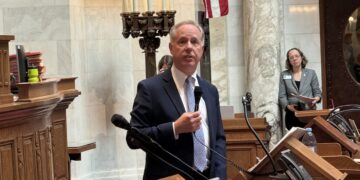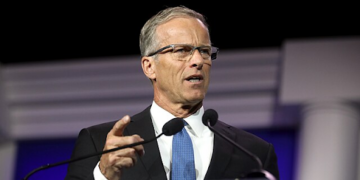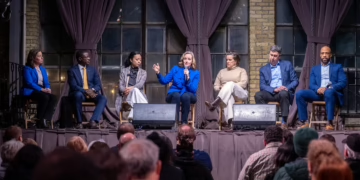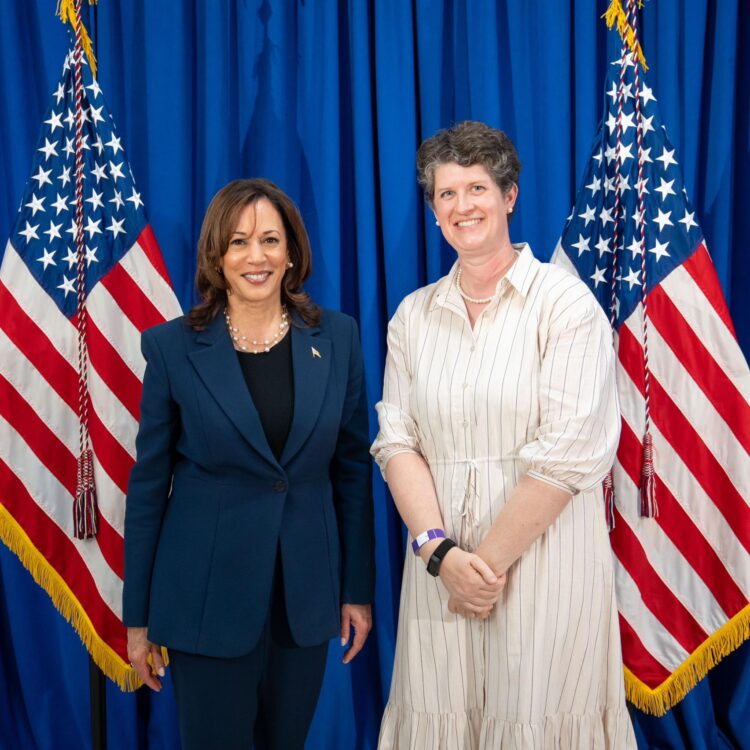Wisconsin voters will face a critical choice next April as the state elects its next Superintendent of Public Instruction. A new poll from the Institute of Reforming Government reveals that only 20% of voters support re-electing the current superintendent, Jill Underly, with 28% favoring a new leader, and a staggering 52% of voters undecided. With public education at the forefront of debates over test scores, financial mismanagement, and cultural concerns, this election could shape the future of Wisconsin’s schools for years to come.
The poll results indicate that voters are uncertain about the direction of the state’s educational leadership. Among Republicans, only 7% support Underly’s re-election, while 42% favor a change. Independents are similarly divided, with 22% backing Underly and 27% leaning toward new leadership. Even among Democrats, traditionally supportive of incumbents, Underly holds just 33% support. This widespread indecision highlights growing concerns about her administration’s handling of key issues like the recent changes to state test scores and the financial scandal plaguing Milwaukee Public Schools (MPS).
Test Score Controversy Clouds Judgment
One of the most contentious issues voters will have to consider is the Department of Public Instruction’s (DPI) decision to lower test score standards, a move that has inflated proficiency rates and masked real achievement gaps. Critics argue that this manipulation makes it nearly impossible for parents, researchers, and educators to understand the true quality of Wisconsin schools. The softer terms introduced in June 2024 — such as replacing “Below Basic” with “Developing” — further complicate efforts to assess student progress. This decision has drawn significant backlash, particularly among those advocating for higher academic standards.
The long-term implications of these changes are a major concern for voters. According to the poll, 52% of respondents believe that the Superintendent’s top priority should be ensuring public schools provide a high-quality education. The manipulation of test scores, however, has left many questioning whether the current leadership can meet that goal.
MPS Financial Scandal Adds to Pressure
Compounding the challenges faced by Superintendent Underly is the ongoing financial controversy within MPS, the state’s largest school district. After the resignation of MPS Superintendent Keith Posley and the firing of Comptroller Alfredo Balmaseda, the district struggled to manage its finances effectively. Interim superintendent Keith Gray, a former Waukesha superintendent, uncovered significant issues with the district’s financial reporting software, which has led to erroneous data submissions to DPI. This resulted in MPS potentially losing state funding, adding pressure on an already fragile system.
Gray’s review found that MPS is using outdated financial software that does not align with DPI’s system, requiring manual entry of critical data — a process prone to errors. The district’s staffing shortages have further exacerbated the situation, with temporary staff hired to manage the workload but proving insufficient to handle the complexity of the system. The uncertainty surrounding who knew about the financial mismanagement and when has shaken public confidence in MPS, putting further pressure on DPI to ensure transparency and accountability.
With 11% of voters stating that fixing MPS should be the next superintendent’s top priority, the district’s financial scandal will undoubtedly play a role in shaping voters’ decisions. Many are calling for DPI to focus on ensuring timely audits and greater oversight to prevent future issues.
Wokeness and Parental Concerns Take Center Stage
Beyond the financial and academic controversies, there is rising concern among parents about what is being taught in Wisconsin’s classrooms. Issues related to “wokeness” in schools have emerged as a key topic of debate. Parents are increasingly concerned about the inclusion of inappropriate books in school libraries, debates over gender identity in sports under Title IX, and the failure of schools to prioritize basic skills like teaching children how to read. Critics argue that schools are focusing too much on social issues and not enough on the academic fundamentals that prepare students for success.
These concerns are fueling calls for more parental involvement in education decisions and for DPI to refocus on core academic goals, particularly in light of Wisconsin’s literacy struggles. With widespread frustration over reading proficiency and the belief that schools have lost sight of essential values, voters may be looking for a superintendent who can address these cultural and academic challenges head-on.
After the Presidential election, Wisconsin voters will need to weigh these significant challenges with Wisconsin’s education system. Will Jill Underly’s leadership be enough to address the state’s educational, financial, and cultural concerns, or will a new superintendent bring the change needed to restore trust in Wisconsin’s public schools? In Wisconsin’s never ending election cycles, voters will have to make that answer in April 2025.
































